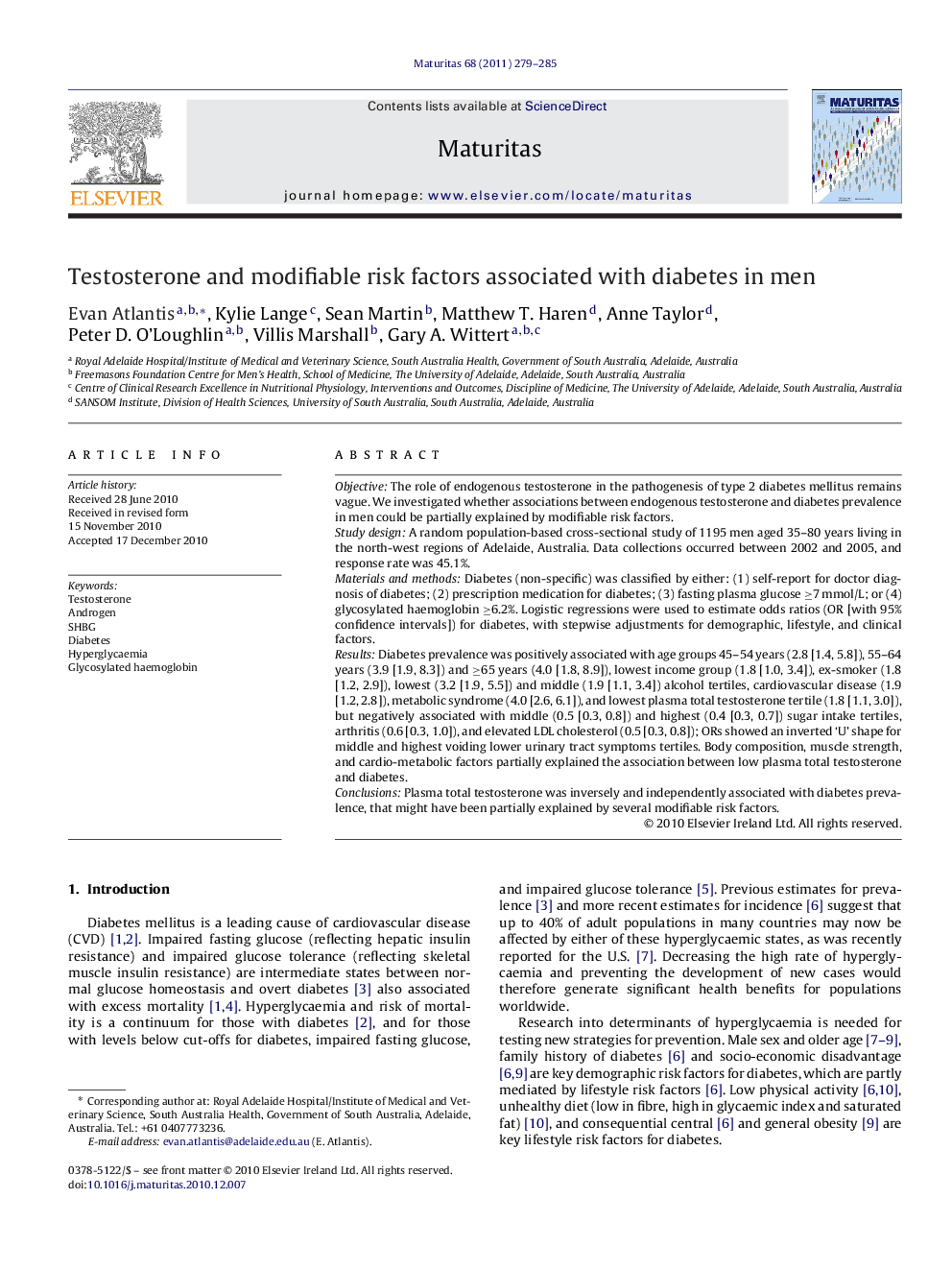| Article ID | Journal | Published Year | Pages | File Type |
|---|---|---|---|---|
| 1918042 | Maturitas | 2011 | 7 Pages |
ObjectiveThe role of endogenous testosterone in the pathogenesis of type 2 diabetes mellitus remains vague. We investigated whether associations between endogenous testosterone and diabetes prevalence in men could be partially explained by modifiable risk factors.Study designA random population-based cross-sectional study of 1195 men aged 35–80 years living in the north-west regions of Adelaide, Australia. Data collections occurred between 2002 and 2005, and response rate was 45.1%.Materials and methodsDiabetes (non-specific) was classified by either: (1) self-report for doctor diagnosis of diabetes; (2) prescription medication for diabetes; (3) fasting plasma glucose ≥7 mmol/L; or (4) glycosylated haemoglobin ≥6.2%. Logistic regressions were used to estimate odds ratios (OR [with 95% confidence intervals]) for diabetes, with stepwise adjustments for demographic, lifestyle, and clinical factors.ResultsDiabetes prevalence was positively associated with age groups 45–54 years (2.8 [1.4, 5.8]), 55–64 years (3.9 [1.9, 8.3]) and ≥65 years (4.0 [1.8, 8.9]), lowest income group (1.8 [1.0, 3.4]), ex-smoker (1.8 [1.2, 2.9]), lowest (3.2 [1.9, 5.5]) and middle (1.9 [1.1, 3.4]) alcohol tertiles, cardiovascular disease (1.9 [1.2, 2.8]), metabolic syndrome (4.0 [2.6, 6.1]), and lowest plasma total testosterone tertile (1.8 [1.1, 3.0]), but negatively associated with middle (0.5 [0.3, 0.8]) and highest (0.4 [0.3, 0.7]) sugar intake tertiles, arthritis (0.6 [0.3, 1.0]), and elevated LDL cholesterol (0.5 [0.3, 0.8]); ORs showed an inverted ‘U’ shape for middle and highest voiding lower urinary tract symptoms tertiles. Body composition, muscle strength, and cardio-metabolic factors partially explained the association between low plasma total testosterone and diabetes.ConclusionsPlasma total testosterone was inversely and independently associated with diabetes prevalence, that might have been partially explained by several modifiable risk factors.
